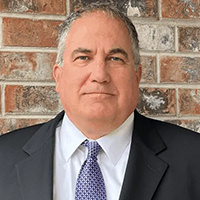Provo White Collar Crime Lawyer, Utah
Sponsored Law Firm
-
 x
x

Click For More Info:
-
Hepworth & Associates
Serving all of Utah » view mapUtah Criminal Lawyers Things Get Better From Here
Providing professional and compassionate representation in various criminal cases. Hepworth & Associates are tough, strong and fair attorneys.
800-625-0860  Michael Hepworth Bountiful, UT
Michael Hepworth Bountiful, UTAttorney At Law - Utah
Sturm College of Law, J.D. - 2014
 Tyler Call Bountiful, UT
Tyler Call Bountiful, UTAttorney At Law - UT, 2015
U of Oregon, J.D. - 2014
 M. Tanner Clagett Bountiful, UT
M. Tanner Clagett Bountiful, UTAttorney At Law - UT, 2016
U of Denver, J.D. - 2014
Dave Clark
✓ VERIFIEDCriminal, Traffic, DUI-DWI, Misdemeanor, White Collar Crime
I went to law school just to be a criminal lawyer. I served as a prosecutor for almost 30 years, but defense law was always my true passion. I'm a nat... (more)
FREE CONSULTATION
CONTACTDavid Paul White
Civil Rights, Constitutional Law, Traffic, White Collar Crime
Status: In Good Standing
FREE CONSULTATION
CONTACTFREE CONSULTATION
CONTACTLawrence J. Leigh
White Collar Crime, Criminal, Constitutional Law, Antitrust
Status: In Good Standing
J. Christopher Keen
Visa, Family Law, White Collar Crime, Collection
Status: In Good Standing Licensed: 22 Years
Tyler Ayres
Traffic, White Collar Crime, DUI-DWI, Criminal
Status: In Good Standing Licensed: 23 Years
Brian K Lofgren
Visa, Family Law, White Collar Crime, Collection
Status: In Good Standing Licensed: 24 Years
Thomas L Mclelland
Traffic, White Collar Crime, Domestic Violence & Neglect, DUI-DWI
Status: In Good Standing Licensed: 16 Years

 Michael Hepworth Bountiful, UT
Michael Hepworth Bountiful, UT

